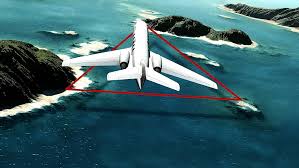The global shipping industry has always been about size, efficiency, and innovation. In recent years, shipping companies have been racing to build mega container ships that can carry more cargo, reduce costs, and minimize their environmental footprint. One such remarkable vessel is the MSC Irina, a giant of the seas operated by the Mediterranean Shipping Company (MSC). With its massive carrying capacity, cutting-edge technology, and focus on sustainability, MSC Irina represents the future of maritime transport.
In this blog, we will explore the details of MSC Irina, its specifications, importance to global trade, and why it is considered a milestone in modern shipping.
The Mediterranean Shipping Company (MSC) – A Brief Background
Before diving into MSC Irina, it’s important to understand the company behind it. The Mediterranean Shipping Company (MSC), headquartered in Geneva, Switzerland, is the world’s largest container shipping line. Founded in 1970, MSC has grown from a small shipping company to an industry leader, operating a fleet of more than 750 vessels worldwide.
MSC’s fleet expansion has always focused on three key aspects:
-
Increasing container capacity
-
Adopting advanced technology
-
Reducing carbon emissions and environmental impact
MSC Irina is a perfect example of these values put into practice.
MSC Irina – An Engineering Marvel
MSC Irina was launched in March 2023 and instantly captured global attention due to its sheer size and capacity. It is recognized as one of the largest container ships in the world, designed to transport massive volumes of goods across international waters.
Key Specifications of MSC Irina:
-
Capacity: Over 24,346 TEUs (Twenty-Foot Equivalent Units). This makes it one of the first ships in the world to cross the 24,000 TEU mark.
-
Length: Approximately 400 meters (longer than four football fields combined).
-
Width (Beam): Around 61 meters.
-
Draft: About 33.2 meters when fully loaded.
-
Shipbuilder: Built by Yangzijiang Shipbuilding Group in China.
-
Operator: Mediterranean Shipping Company (MSC).
This capacity allows MSC Irina to transport nearly 240,000 tons of cargo in a single voyage, making it a vital asset in global trade.
Why is MSC Irina Important?
1. Boosting Global Trade Efficiency
Shipping is the backbone of international trade, handling nearly 90% of goods transported worldwide. Mega-ships like MSC Irina make it possible to move huge volumes of goods efficiently and reduce the number of voyages required. This directly lowers operational costs and improves supply chain efficiency.
2. Economies of Scale
By carrying more containers in one journey, MSC Irina reduces the cost per unit transported. This means businesses can ship products more economically, and consumers may benefit from reduced prices in global markets.
3. Strengthening MSC’s Position
With MSC Irina in its fleet, MSC reinforces its dominance as the world’s largest container shipping line. Competing companies like Maersk and COSCO are also building ultra-large container ships, but MSC has managed to stay ahead in the race.
Sustainability and Eco-Friendly Design
One of the most significant aspects of MSC Irina is its focus on sustainability. The shipping industry has faced criticism for being a major contributor to global carbon emissions. However, ships like MSC Irina are built with modern technology that reduces their environmental impact.
Environmental Features of MSC Irina:
-
Energy Efficiency: Equipped with advanced engines that reduce fuel consumption.
-
Emission Control: Uses exhaust gas cleaning systems (scrubbers) to cut down sulfur oxide emissions.
-
Hull Design: Its streamlined design reduces water resistance, improving fuel efficiency.
-
Alternative Fuels Ready: MSC Irina is designed to adapt to future green fuels like LNG (Liquefied Natural Gas) and biofuels.
By adopting these measures, MSC Irina is not just a marvel of size but also a step toward a greener shipping industry.
Challenges of Operating Mega Ships
While MSC Irina is an engineering wonder, operating such a massive vessel also presents challenges:
-
Port Limitations: Not every port in the world is capable of handling a ship of this size. Only deep-water ports with specialized infrastructure can accommodate MSC Irina.
-
High Construction Costs: Building a mega ship requires billions of dollars in investment.
-
Navigational Challenges: Maneuvering a 400-meter-long vessel in congested ports or narrow waterways is a highly complex task.
-
Risk of Overcapacity: If global trade slows down, ships of this size may not be fully utilized, leading to economic inefficiencies.
Despite these challenges, the benefits far outweigh the drawbacks, making mega ships a logical step for the future of shipping.
Impact on Global Shipping Industry
The launch of MSC Irina has set a new benchmark in the shipping industry. Other companies are now compelled to expand their fleets with similar ultra-large container vessels (ULCVs).
Additionally, it has sparked debates on whether bigger is always better. While mega-ships reduce costs and emissions per container, they also increase dependency on fewer, larger vessels, which can disrupt supply chains if something goes wrong (as seen during the Ever Given blockage in the Suez Canal).
Nevertheless, MSC Irina represents progress, efficiency, and the maritime industry’s efforts to balance trade demands with sustainability.
Conclusion
The MSC Irina is more than just a container ship—it is a symbol of modern engineering, global trade expansion, and sustainable shipping practices. With its enormous capacity of over 24,000 TEUs, it stands as one of the largest ships ever built, enabling MSC to lead the shipping industry into a new era of mega-container vessels.
While challenges remain, MSC Irina’s contribution to efficient logistics, lower shipping costs, and reduced environmental impact make it a milestone in maritime history. As global trade continues to grow, ships like MSC Irina will play a crucial role in connecting nations, economies, and people across the seas.
In short, MSC Irina is not just a ship—it is the future of global shipping.
